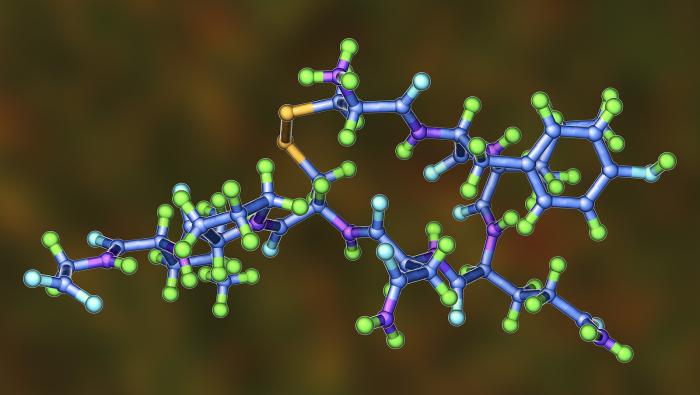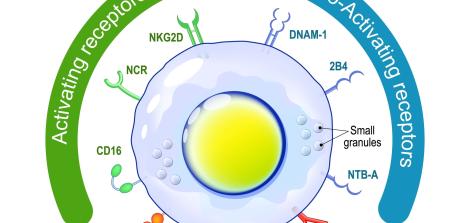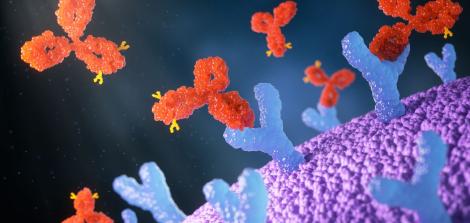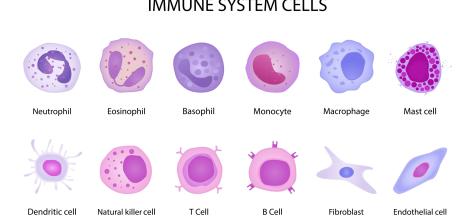Oxytocin as a Marker of Change in the Treatment of Depression

Major Depressive Disorder (MDD), characterized by negative emotions, difficulty concentrating, fatigue, and lack of initiative and unhappiness, affects millions of women and men worldwide every year. Clinical depression poses a heavy burden on those who suffer from it, as well as on their families and on the healthcare systems.
There is a fairly wide range of psychological treatments for depression, but the mechanisms that determine the success of psychotherapy for depression are still not fully understood.
Can objective biomarkers be found to measure treatment outcomes, thereby optimizing and personalizing therapy? So far, most of the studies on the benefits of psychotherapy have been based on client self-reports, and as a result, research methods have been limited. The present study, conducted at the psychotherapy laboratory led by Prof. Dana Atzil-Slonim, sought to break through the boundaries of psychotherapeutic research and find a biomarker whose presence could indicate the success, or failure, of treatment for depression.
The research hypothesis: the relationship between depressive symptoms and Oxytocin
This groundbreaking study focused on the hormone Oxytocin and sought to investigate the relationship between changes in the levels of this hormone and changes in symptom severity in clients suffering from clinical depression.
Oxytocin is a neuropeptide, a small molecule that functions as a messenger between different regions of the brain. The Oxytocin system has been found to be related to various cellular, molecular, and neural functions, to mediate between the brain and the body, and to affect the stress, reward, and immune systems. Oxytocin plays a significant role in childbirth and in breastfeeding in women, as well as in the ability to create and sustain social connections in men and women.
In depression research, Oxytocin has been shown to be involved in intrapersonal and interpersonal processes related to depression, but the relationship between depressive symptoms and the baseline levels of Oxytocin is controversial: some studies identified a connection between depression and reduced Oxytocin baseline levels, others identified a connection between depression and higher levels of this hormone, and some studies found no differences at all between the baseline levels of Oxytocin in people suffering from depression compared to healthy individuals.
The reason for these contradictions may be related to research limitations: most of the studies so far have been cross-sectional and involved taking only a single sample to measure baseline levels of Oxytocin rather than measure the reactivity of the Oxytocin system - that is, a change in the levels of this hormone in the body in response to environmental stimulation. Since depressive symptoms generally tend to change over time, studies that examine the reactivity of the Oxytocin system against the dynamics of depressive symptoms can significantly contribute to expanding the scientific understanding of the role of Oxytocin in depressive conditions.
The main research hypothesis was that clients who tend to exhibit a greater degree of Oxytocin reactivity to the therapy session will exhibit greater improvement in depressive symptoms during the course of therapy compared to clients whose Oxytocin system reactivity is blunted - that is, they have lower reactivity to environmental stimulation.
Data collection and analysis
The study included 30 clients (19 men and 11 women) between the ages of 21-59 who were diagnosed with clinical depression. The clients underwent short-term (16 sessions) psychodynamic psychotherapy adapted to the treatment of depression. 9 therapists (5 women and 4 men) participated in the study, all of whom were undergoing advanced clinical training with prior experience of 3-7 years.
Every three sessions (5 times over the course of therapy) saliva samples were taken before and after the therapy sessions to detect Oxytocin levels. A total of 284 samples were collected (some samples were missing for technical reasons) and were sent to the laboratory for testing. In addition togiving saliva samples, the clients answered questionnaires about their medical condition on the same day.
Through these two assessments, the researchers could analyze the change in Oxytocin levels at the beginning and at the end of the session, analyze the trend of the change (upward or downward) and calculate the average change in Oxytocin reactivity across the five documented sessions.
At the beginning of each session, the clients were asked to answer the Beck depression assessment questionnaire, which provided feedback regarding the clients' condition, the severity of their symptoms, and the progress, or lack thereof, in the course of therapy.
Result analysis
The researchers used multilevel models to analyze the relationship between Oxytocin reactivity and depressive symptoms. They discovered that in accordance with their research hypothesis, the clients whose Oxytocin reactivity to the therapeutic session was high reported greater improvement in depressive symptoms throughout treatment.
Further analysis of the outcomes proved that there is no relationship between the reactivity trend, namely whether Oxytocin values were rising or dropping, and the changes in depressive symptom severity. In other words: the very existence of high Oxytocin reactivity, rather than changes in the levels of oxytocin, is a biomarker of the success of depression treatment.
The bottom line
This research was done as part of our laboratory's efforts to shed light on the mechanisms that promote improvement in psychotherapy, specifically by focusing on finding biomarkers related to therapeutic achievements. By examining the relationship between Oxytocin reactivity and the improvement in depression symptoms along the course of therapy, we have demonstrated that in clients with major depression, those who exhibited higher Oxytocin reactivity throughout treatment experienced a more significant improvement in depressive symptoms.
No connection was found between the trend of the change (upward or downward) in Oxytocin levels and symptom improvement, a finding that illustrates the importance of examining the reactivity of the Oxytocin system rather than examining hormone baseline levels.
From a broader perspective, these findings add to the existing evidence on the importance of the Oxytocin system, by showing that blunted reactivity of the Oxytocin hormone may indicate psychological inflexibility and difficulty responding to interpersonal interactions, leading to a higher probability of therapeutic failure.
Studies planned for the future will hopefullyshed more light on the relationship between Oxytocin reactivity and treatment outcomes, for example by examining symptom severity before and after each therapy session, or by testing whether specific client characteristics affect the relationship between Oxytocin reactivity and treatment outcomes.
Last Updated Date : 29/12/2022








